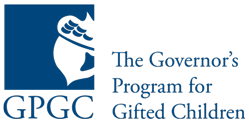Here are some reports from the teachers of each of our afternoon classes for the last week in the Program. We have organized them by class:
Choir (Ms. Colette Tanner, Instructor)
The students are continuing to learn their concert repertoire. If you would like to see the music they are learning, click on www.gpgcsings.blogspot.com . All possible concert repertoire is listed there with listening links. The students are also working on their MUSIC THEORY and APPRECIATION packets. At the end of this packet is a creative project due at the end of the summer. We have also been taking rhythmic dictations and will begin adding syllables to those rhythms this week.
Computer Tech (Barry Humphus, Instructor)
Students to continue to explore 3D printing, finding new (and sometimes impossible) items to print. We have had some failed prints and that is good as they learn what works and does not.
Debate (Ms. Jessica Markstrom, Instructor)
The students needed more time with topicality this week. We spent most of the week working on topicality position exercises. On Thursday and Friday we the students learned about and began to prepare disadvantage positions.
Critical Thinking (Mr. Robert Markstrom, Instructor)
This week was survivor week in Critical Thinking. The students were put into different types of survival scenarios to test their ability to thrive under disaster wilderness conditions. The students ranked items based on usefulness. The activities came from survival and military experts. Additionally, the students had to work to either escape or live on an island after they had been shipwrecked. The last survivor related activity paid homage to the television show “Survivor” as students engaged in an auction. On Friday students were able to play games offered by the instructor.
Costume/Make-up Design (Ms. Jessa Lormand, Instructor)
This week the students continued to work on their assigned female Brigadoon characters. They were also broken up into 3 groups and assigned the remainder of the Brigadoon cast for costuming, along with the men to work on together. All students now have individual and group assignments to work on. Their individual sewing kits also arrived Tuesday and they were all super excited to receive those. Almost everyone is now a master at using the seam ripper and removing “ugly things” from old costumes and they have each successfully patched up rips, holes and hem issues so next week we can begin adding the decorative elements (which they have all been waiting for.) Students learned how to make and sew fabric rosettes that we will be attaching to sashes and across dresses. The groups also finished measuring and charting the remainder of the actors along with beginning research online for their additional assignments (bagpipers, sword dancers, wedding guests etc.) and display board content. I was again very impressed by the journals turned in this week.
Drama (Ms. Jessa Lormand, Instructor)
This week we began scene transitions and choreography, which is abundant in this production. We went over the set design and sketches for each scene and transition into the next. Collectively, the group made decisions on other aspects of staging and design. Some of the cast were able to try on costume pieces this week and began watching some of the movie “Never Been Kissed” as it is referenced and used in the play itself. We worked through all family kitchen scenes along with Tammy/Parent scenes in detail, assigned and read through/worked all the voice over parts to prepare for recording them next week. All students are focused and working on something at all times. When not actively on stage working or acting, they are running lines, designing for the show or creating art for the lobby display. I can not express what a joy this group is. Every single child in this production puts in 100% daily. Their energy and passion is infectious.

